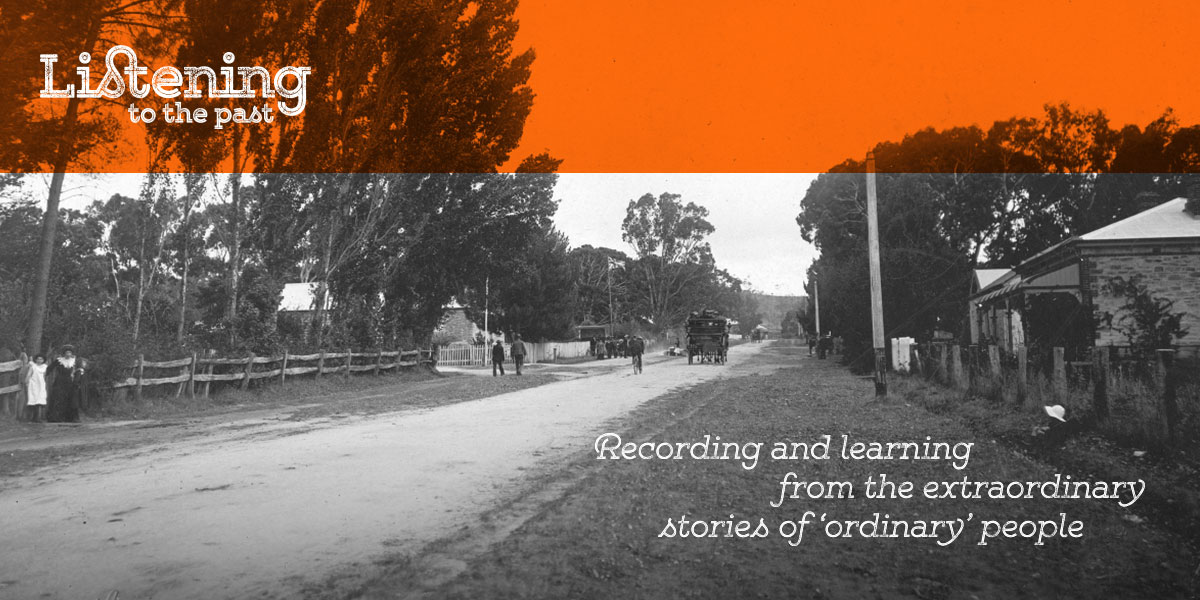My previous post introduced the Unemployment Relief Scheme settlement in Meadows that was established during the Great Depression. Oral history interviewees talked about what it was like to live there in cottages that had been described as ‘roomy tin bungalows’ in a contemporary newspaper report.
Although the cottages themselves were basic, was the scheme otherwise successful? Did it live up to expectations?
Did the scheme succeed?
The Unemployment Relief Scheme established four settlements in the southern Mount Lofty Ranges, beginning in 1933. The first three were at Echunga (13 families), Bridgewater (4 families) and Yundi (19 families), and finally the Meadows settlement in May 1934. By July 1934, the chairman of the Land Settlement Committee, Mr Spafford, was reported in the Chronicle as saying,
Now that the original settlements have been in existence for more than a year, the position looks much more hopeful than it did at the commencement. If the price of export eggs is maintained at about the figure which has ruled during the past season, and if nothing is done to interfere seriously with the acceptance of Australian eggs on the British market, it appears probable that the proportionate success will be greater than the 40 per cent thought likely when the scheme was inaugurated. Even if a high proportion of settlers fail to make good as farmers, the successful settlement of some of them, the rehabilitation of the men to a frame of mind and physical fitness to appreciate work, the return of hope and contentment to the womenfolk, and the fact that so many children have been reared in healthy surroundings in the country, will make the trial well worth while.”
Overall impressions
Those in charge of the scheme may have been pleased with its progress. But how did the settlers feel? Was the scheme worthwhile in their opinion? Did they become successful farmers? Were they contented? I asked the former residents of the colony these and other questions.
Harry’s overall impression of the scheme were very negative:
As far as I’m concerned, the whole thing was a total disaster. Even though it got us out of the towns it didn’t really work. The settlement system didn’t really work. I felt that perhaps we might have starved in the cities but at least we would have starved with a bit more facilities.
A useless farm

One of the remaining Poultry Settlement Cottages, now used as a shed, in Meadows, 2008.
Lillian had similar views to Harry about the failure of the scheme, and explained its weaknesses:
Well, I think it was a real government bungle right from start to finish, putting people there on such a little bit of land and running a poultry farm there that was useless. I mean the conditions weren’t conducive to poultry being there in those sort of conditions. And I think sending people up to a house like that with all the children with no bathroom, no wash house, no water, it was – – –. I mean you see them say people are in poverty now, but that’s nothing to what it was there. It was just absolute poverty. But I think out of that all I learned that you don’t ever get anything for nothing, you work for everything you got and you always make your own opinions about people, no matter what people say you don’t take any notice of that, you work your own thing out to decide who is who. Whether I would have learned the same if I’d have been in town – I probably would have, I don’t know; but I just sort of thought it did teach me there you’ve got to be responsible for yourself no matter what you do or how you do it. It’s your life and you’ve got to make it, you can’t expect someone else to do it for you, you’ve got to – it’s your life. You’re given a life but you’re not given anything else; you work for that.”
Was country life better or easier?
The Land Settlement Committee believed it was better to raise families in the “healthy surroundings in the country”, than in the city. The settlers were not convinced about this. Harry explained:
I think they had a misguided idea that these people would have a better life if they left the areas of, well, civilisation, I would imagine, and that if they left the areas – and remembering that these people were coming from homes that they’d built there; perhaps they weren’t living particularly well – but then they thought that they would be able to sustain a better lifestyle on a small, ten-acre block. But when you’d come to these blocks it was a primitive house: it had three rooms, that’s two bedrooms and a kitchen/dining room/living room and everything; it had no running water – actually when we arrived it had no water at all. There was an outside toilet that was way down the yard; there was only wood heating, they only had wood to light the fires; and there were kerosene lanterns. So they had some misguided idea that they would come to a better life. But actually they put all of those twenty-two families into abject poverty.”
A more hopeful position…
At the beginning of this post I quoted the optimistic comments of the chairman of the Land Settlement Committee. He refers to the likely success of the scheme as long as the price of export eggs is maintained, and the British market for Australian eggs is maintained. In a future post, I’ll investigate what actually happened to the settlers, and their financial success or otherwise.
Quotes from oral history interviews with Harry Portlock and Lillian Gage courtesy of the State Library of South Australia (OH 829-5 and 16).


2 thoughts on “Oral history of the Great Depression part 2”